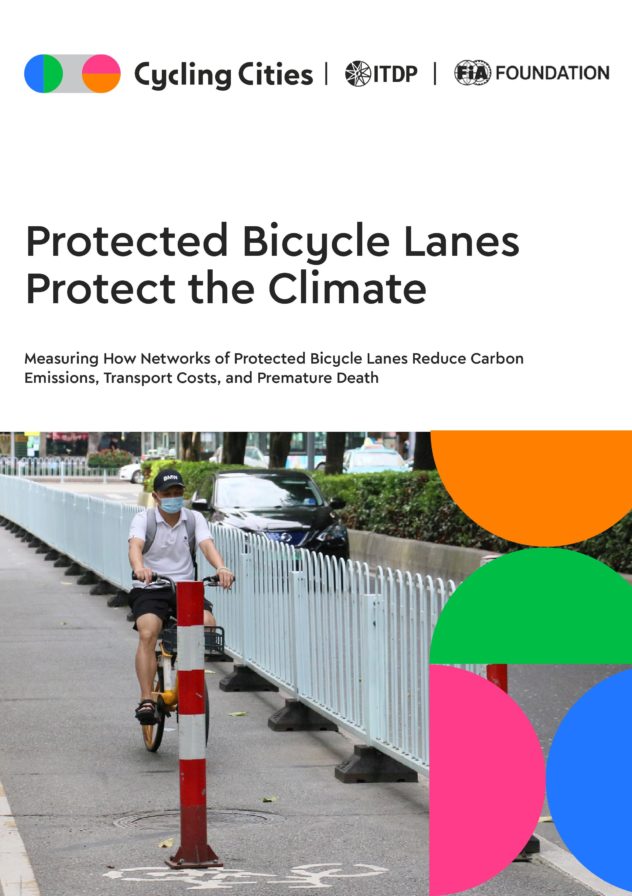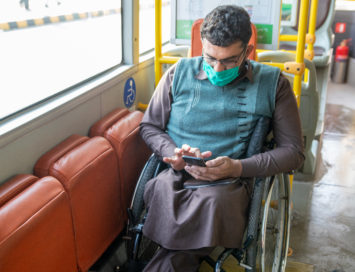Protected Bicycle Lanes Protect the Climate
About
As part of ITDP’s global Cycling Cities campaign and with support from the FIA Foundation, this report finds that networks of protected bicycle lanes in middle-income cities reduce greenhouse gas emissions, lower transport costs, and prevent premature road fatalities in a highly cost-effective way.
Connected networks of physically-protected bicycle lanes, rather than disconnected, unprotected lanes or other policy measures, are the most important factor in increasing cycling usage. This study provides quantitative evidence to support this by examining the impacts of citywide networks of protected bicycle lanes in two cities in middle-income countries — Bogotá, Colombia and Guangzhou, China.
This report offers one of the first-ever empirical measures of greenhouse gas reductions from networks of protected bicycle lanes in low- and middle-income countries, and asserts that:
- Networks of protected bicycle lanes are not only an extremely cost-effective way of reducing emissions, they also provide quantifiable economic benefits;
- Cities urgently need to reduce emissions to address climate change and improve residents’ quality-of-life through investments into protected bicycle lane networks; and
- Development banks and local and national decisionmakers should commit more resources to scaling protected cycling infrastructure with this evidence.
The findings of this research also enable anyone to model the climate impacts that a bicycle lane network would have in their city. ITDP developed a free SCOPE modeling tool (available in Excel) to predict the climate impacts of any proposed bicycle lane development. You can also access SCOPE modeling tools for bus rapid transit (BRT) and off-street parking.
Learn More
- Continue Reading on the ITDP Blog →
- Read the press release from the FIA Foundation →
- Download the “Making the Economic Case for Cycling” report →
- Watch the “Protected Bike Lanes Protect the Climate” webinar →
- Access the Mastering the Cycling City Learning Hub Course →
Interested in learning more about this research or have a press inquiry? Email us at mobility@itdp.org.





